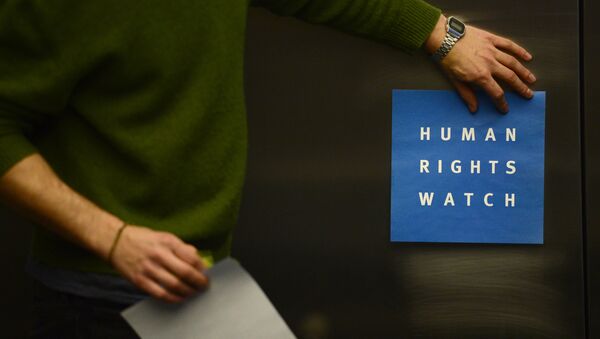MOSCOW (Sputnik) – In late June, King Salman bin Abdulaziz Al Saud replaced then-Crown Prince Mohammed bin Nayef with his 31-year-old son Mohammad Bin Salman.
"Saudi Arabia’s public relations firms and management consultants have recently sold a reform narrative, but executions have only increased since Saudi Arabia’s leadership change, and many more could be on the way. Executions are never the answer to stopping crime, especially when they result from a flawed justice system that ignores torture allegations," Human Rights Watch Middle East Director Sarah Leah Whitson said in a statement.
The watchdog's regional director specified that 35 people, including nine criminals charged with non-violent, drug-related crimes, have been executed in Saudi Arabia since late June. The proportion of individuals condemned to death during this time is significantly higher when compared to the entire first half of 2017, over which 39 people were executed.
The statement also drew attention to the fact that the total of 14 Shiite men charged with protest-related crimes, and 19 other people were currently on the death row.
Saudi Arabia has been repeatedly criticized by the international community for its human rights violations, including public beheadings, restrictions on freedom of expression, and discrimination against women and children. In 2016, over 150 people were executed in the country.



